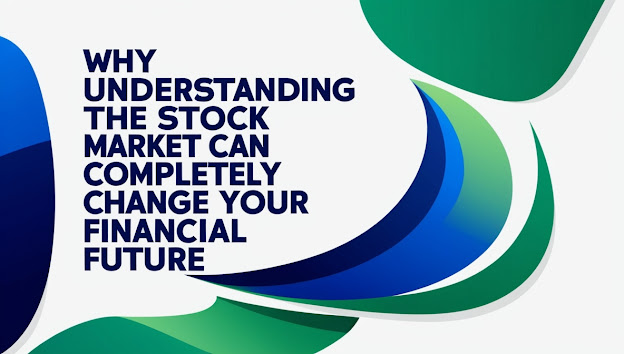


**"Earnings Snapshot: Numbers That Shook the Market"**
> Its Q4 results were marked by a **sharp decline in profit** below analyst expectations.
> ???? Bad loan provisions were three times higher than the previous quarter.
> ???? Loan growth came in at 13% — lower than its peers.
This underperformance instantly spooked the investors, and there was an instant sell-off.

## *: Why did the Share Price Fall?**
Investors were concerned the increase in non-performing loans is an indication of underlying credit quality problems.
13% growth might sound good compared to others, but when others achieved 18–20%, Kotak was weak.
The tone of the management during the investor call wasn't all that optimistic, which complemented the bearish sentiment.
## *: Market Reaction and Technical Perspective**
**"How the Market Responded and What the Charts Indicate"**
The very next day of trading, the Kotak stock dipped to about ₹1,770 from ₹1,875.
It snapped major technical support levels, triggering stop-losses.
The stock was the leading loser on Nifty Bank and Nifty 50.
???? **Chart Talk:** Displaying visuals, include a candlestick chart along with resistance and support areas.
## ???? : Should You Buy the Dip?**
**Opportunity or Red Flag? What to Do as a Retail Investor
Some analysts view this as a temporary blow to an otherwise healthy bank.
Others are holding off, recommending to wait for better signals of loan book recovery.
If you are a long-term investor, now is perhaps the right moment to watch Kotak closely but take no hasty decisions.
## CLOSING THOUGHTS: Final Thoughts
"Kotak’s fall reminds you that the best stocks are also susceptible to earnings jolts. Being an investor, the key is to be aware — and not just get carried away."
Share your views in the comments — *Do you believe Kotak is a buy at the moment, or are you giving it a miss?
The Kotak Q4 2025
The decline in Kotak share price
* Stock market vlog India
* Bank earnings analysis
* Nifty bank stocks
The days of investing in India capturing a piece of those fixed deposits or leaving it up to the family elders are gone. Now, today's GenZ is redrawing the playbook for investment, as they're doing it with style, speed, and intelligence.
For the GenZ generation, applications such as Upstox, Groww, INDmoney, and Zerodha are the new banks. They adore easy-to-use, open, as well as mobile-based platforms. More than half of today's new-age youth do their first market move through an application instead of conventional brokerages.
While older generations may remain skeptical about Bitcoin and NFTs, Gen Z is already involved. More people are now perceiving cryptocurrency as a gamble, but as a diversified investment. They are also dabbling into other assets such as REITs, international equities, even owning fractional pieces of art and collectibles.
Unlike previously, youngsters are learning about money. They don't only save—they accumulate wealth understanding the concept of SIPs, index funds, and risk management. They are learning through YouTube explainers as well as Instagram finance influencers. They are exposed to financial content daily.
It's not only about profits. Gen Z is interested in where their money is going. They are increasingly turning to ESG (Environment, Social, and Governance) investing. Several of them prefer firms that share their viewpoints regarding climate change, social issues, and ethical management.
Instead of banking so much on financial advisors, DIY (Do-It-Yourself) investing is a favorite amongst Gen Z investors. They inhabit online platforms such as Reddit, Twitter Spaces, and Telegram groups, where they share ideas, talk stocks, crypto trends, and learn from fellow traders.
------------------------------------------------------
Gen Z of India is demonstrating that investing is as much about freedom as it is about money—it's about making thoughtful choices with a desire for change. Equipped with technology, global awareness, and a passion for learning about money, they are revolutionizing wealth creation beyond recognition.
------------------------------------------------------
Gen Z investment India, online investment platforms India, where does Gen Z invest, investment trends India 2025, cryptocurrency adoption India, India ESG investing, financial literacy of Gen Z I'm #GenZInvesting #IndiaInvests #DigitalInvesting #CryptoIndia #FinancialFreedom #ESGInvesting #InvestSmart #WealthBuilding #GenZFinance I'm

In India, we often hear people saying, "Stock market is risky!"
But very few talk about the incredible power the stock market holds — not just to make money, but to create real financial freedom.
Whether you're a student, a working professional, or a business owner, understanding the power of the stock market can open up opportunities that are hard to find elsewhere.
Today, let's decode how the stock market works and why it is considered one of the most powerful wealth-building tools in the world.
You must have heard the famous saying by Albert Einstein —
"Compounding is the eighth wonder of the world."
In the stock market, compounding is like planting a tree.
You invest a small amount today, and over time, it grows into something massive.
Imagine investing ₹10,000 today. If your investments grow at just 15% per year, in 20 years, you could have over ₹1 lakh without adding a single extra rupee!
This is the real magic of the stock market — your money works for you, even when you sleep.
In India, traditionally, people love Fixed Deposits, Gold, and Real Estate.
But compare the returns:
| Investment Type | Average Annual Return |
|---|---|
| Fixed Deposit (FD) | 5%-6% |
| Gold | 7%-8% |
| Real Estate | 8%-10% |
| Stock Market (Sensex Average) | 12%-15% |
While FDs keep your money "safe," the stock market grows your money faster, beating inflation in the long run.
When you buy a company's stock, you are not just buying a piece of paper.
You are actually becoming a part-owner of that company.
Think about it —
By investing in companies like Tata Motors, Infosys, or Reliance, you are becoming a small partner in India's biggest success stories.
This ownership can bring:
Dividends (Regular income)
Capital appreciation (Price rise)
Pride in owning a piece of top companies
Many people fear market crashes.
But smart investors know that every dip is an opportunity.
When the market falls, quality stocks are available at discount prices — just like a sale at your favorite store!
History has shown again and again:
After every major fall, the market has always bounced back stronger.
Those who stay patient and invest wisely during tough times are the ones who create real wealth.
The power of the stock market is not just financial.
It teaches you valuable life lessons like:
Patience
Discipline
Risk Management
Emotional Control
Learning how the market works makes you a better decision-maker, not just in investing, but also in business and personal life.
Let's be honest — stock markets do have risks.
But with proper knowledge, research, and a long-term mindset, you can easily manage these risks.
The key is:
Invest in quality companies
Stay diversified (don’t put all your money in one stock)
Think long-term (at least 5-10 years)
Avoid emotional decisions
Remember, no one becomes rich overnight in the stock market. It’s a slow but steady journey.